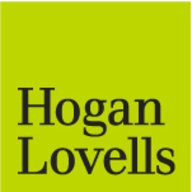Germany's Whistleblower Protection Act
Germany's new Whistleblower Protection Act safeguards individuals who expose legal violations in their profession. It combats discrimination and retaliation, encouraging internal reporting within companies. The Act covers various German laws and the EU's Digital Market Act.

Germany's Whistleblower Protection Act Cyber Security and Compliance
Germany's new Whistleblower Protection Act is a significant stride for the country's regulatory landscape, aiming to protect individuals who disclose legal violations linked to their professional activities. The Act safeguards whistleblowers from discrimination and retaliation, fostering an environment where misconducts are more easily exposed, thus contributing to overall business compliance. This legislation is particularly significant given that there was no comprehensive whistleblower protection system in Germany previously. Companies are now required to establish internal reporting channels, encouraging whistleblowers to report incidents internally. This Act covers not only violations of EU law but also of various German laws, expanding its reach to include criminal offenses, certain misdemeanors, and provisions of product safety, environmental and radiation protection law. Interestingly, it also covers violations of German and European antitrust law, and the EU's recently enacted Digital Market Act. This is where the German Federal Cartel Office (FCO) comes in, acting as an external reporting channel, ensuring whistleblowers' anonymity.
Germany's Whistleblower Protection Act: Implications for Financial Institutions and Regulatory Compliance
Germany's recent enactment of the Whistleblower Protection Act marks a significant milestone in the country's regulatory landscape. This new legislation aims to safeguard individuals who expose legal violations related to their professional activities, fostering a culture of transparency and accountability. In this article, we explore the implications of this Act for financial institutions operating in Germany, the relevant regulatory jurisdiction, and the measures companies must take to ensure compliance.
The Whistleblower Protection Act holds relevance for various financial institutions operating in Germany, including banks, insurance companies, investment firms, and other entities engaged in financial services. These institutions must adapt their internal policies and procedures to align with the Act's requirements.
The Whistleblower Protection Act applies exclusively to Germany and falls under the jurisdiction of German regulatory authorities. Financial institutions must familiarize themselves with the Act's provisions and comply accordingly to avoid penalties and reputational risks.
The Whistleblower Protection Act encompasses a range of regulations aimed at promoting transparency and accountability. This includes protecting whistleblowers from discrimination and retaliation, establishing internal reporting channels, and expanding the Act's coverage to violations of EU and German laws, criminal offenses, and provisions related to product safety, environmental and radiation protection, antitrust law, and the EU's Digital Market Act.
Impact on Financial Institutions: The Act's implementation can have far-reaching implications for financial institutions in Germany. Here are the key impacts to consider:
- Effect on Leniency Applications: The Act's encouragement of direct reporting to the Federal Cartel Office (FCO) may reduce a company's chances of a successful leniency application. This can result in higher fines and penalties if reported suspicions are confirmed, amplifying financial risks for financial institutions.
- Increased Pressure on Antitrust Compliance: With the FCO encouraging whistleblowers to report antitrust violations, financial institutions must carefully evaluate the pros and cons of leniency applications. Failure to address potential violations can lead to heightened scrutiny, enforcement actions, and reputational damage.
- Internal Reporting Channel Requirements: Companies, especially larger financial institutions, must invest in establishing robust internal reporting channels. This investment entails additional compliance costs, including infrastructure setup and employee training programs, to meet the Act's requirements.
- Strengthened Whistleblower Position: The Act bolsters the position of whistleblowers, resulting in a potential rise in suspicious activity reports. Financial institutions may face increased regulatory scrutiny and investigations, highlighting the importance of strong compliance programs to mitigate financial and reputational risks.
The implementation of Germany's Whistleblower Protection Act has wide-ranging implications for financial institutions, necessitating a proactive approach to regulatory compliance. By establishing robust internal reporting channels, evaluating leniency applications carefully, and enhancing compliance programs, financial institutions can navigate the evolving regulatory landscape and ensure adherence to the Act'sprovisions. This proactive stance will not only help financial institutions meet their legal obligations but also foster a culture of integrity and transparency, ultimately enhancing trust with stakeholders.
By staying updated on the latest developments in the Whistleblower Protection Act and maintaining a strong commitment to compliance, financial institutions operating in Germany can navigate regulatory challenges successfully while safeguarding their reputation and long-term viability.
Disclaimer: The information provided in this article is for informational purposes only and should not be construed as legal or financial advice. Organizations should consult with legal and compliance professionals to understand the specific implications of the Whistleblower Protection Act and develop tailored strategies to ensure compliance.
Read More
Reduce your
compliance risks


